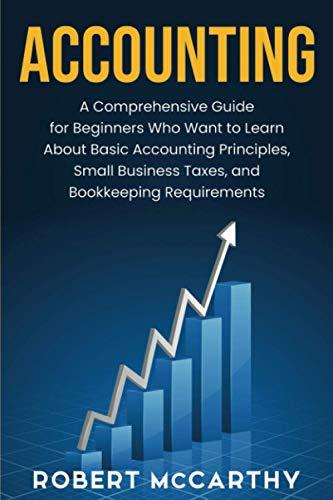Question
In the early 21st century, U.S. deficits began increasing dramatica with the 2020 federal deficit as a percentage of GDP growing to levels not seen
In the early 21st century, U.S. deficits began increasing dramatica with the 2020 federal deficit as a percentage of GDP growing to levels not seen since World War II. In the years to come, it is possible that tax rates will increase. Assume that the year 2040 and that you are a wealthy business owner. Your personal tax rate is 60%. The tax on realized capital gains are taxed at 35%; the top corporate rate is 45%. Your expected before-tax rate of return on investments is 15%. You are deciding whether it is advantageous to
incorporate.
What would be the annualized after-tax rate of return on $1 in the following scenarios?
Part (a): You organize as a C Corp at your investment horizon is 5 years
Part (b): You organize as a C Corp at your investment horizon is 10 years.
Part (c): You organize as a partnership at your investment horizon is 5 years
Part (d): You organize as a partnership at your investment horizon is 10 years
Part (e): True/False. Suppose that you did incorporate and that 5 years later, the personal tax rate unexpectedly falls to 50%. Assuming your investment horizon is 5 more years, you should liquidate your corporation and start a new partnership.
Round percentages to 2 decimal places and input the percentage sign (e.g., 10.65%; NOT 10.65, 0.1065, 10.7%, etc.)

Step by Step Solution
There are 3 Steps involved in it
Step: 1

Get Instant Access to Expert-Tailored Solutions
See step-by-step solutions with expert insights and AI powered tools for academic success
Step: 2

Step: 3

Ace Your Homework with AI
Get the answers you need in no time with our AI-driven, step-by-step assistance
Get Started


